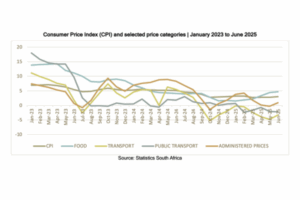How much does the CEO of your company earn? Is the company you work for making a profit? When negotiating, do the bosses accurately reflect the finances of the company?
South African multinational companies (MNCs) bring much-needed investment and job opportunities to the country but are criticised for exploiting local labour and resources for financial gain. Despite the criticism, MNCs continue to operate in South Africa and play an important role in the economy.
Many of the companies don’t provide adequate benefits to the local communities in which they operate. In addition, the high salaries and perks enjoyed by the executives of MNCs can create significant income inequality, further exacerbating the high levels of poverty and inequality in South Africa. It is important for the government, local communities and civil society, especially trade unions, to carefully consider the impact of MNCs and to ensure that they contribute to the overall well-being of the country and its people.
The annual MNC Trends Report of the Labour Research Service provides information on the performance, operations and governance of 81 JSE-listed South African multinational companies.
The 2022 issue of the MNC Trends Report takes stock of the year in light of the challenges posed in South Africa and globally. The sector-specific information is intended to help unions to shape bargaining demands given the financial situation and executive remuneration of companies. The information also serves as a precursor to the companies and sectors that may continue to suffer in 2023, and with this in mind hopes to inform trade union responses to possible retrenchments and refusals to accede to bargaining demands.
2022 MNC sector reports
Key resource
Online tool for trade unions and researchers: The LRS Multinational Corporations (MNC) database
Track 81 JSE-listed companies operating in 14 sectors. Find simplified financial information on the company. Monitor and compare profit in the sector. Know how much the CEO was paid.
Our company research is made possible through the support of Friedrich-Ebert-Stiftung Trade Union Competence Centre.







